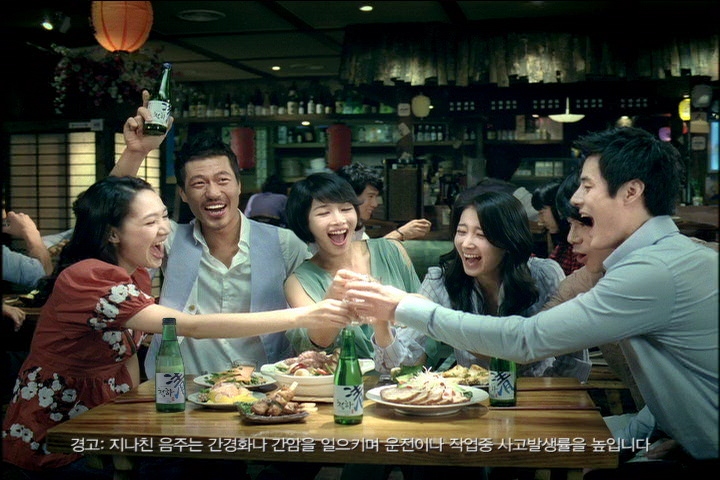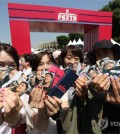- California Assembly OKs highest minimum wage in nation
- S. Korea unveils first graphic cigarette warnings
- US joins with South Korea, Japan in bid to deter North Korea
- LPGA golfer Chun In-gee finally back in action
- S. Korea won’t be top seed in final World Cup qualification round
- US men’s soccer misses 2nd straight Olympics
- US back on track in qualifying with 4-0 win over Guatemala
- High-intensity workout injuries spawn cottage industry
- CDC expands range of Zika mosquitoes into parts of Northeast
- Who knew? ‘The Walking Dead’ is helping families connect
Korea’s heavy-drinking culture result of ‘burnout syndrome’

When people drink in a mentally and physically exhausted state, they are unable to properly relieve their fatigue, leading to weakened immune functions, and greater likeliness of becoming exposed to other illnesses. (NEWSis)
In Korea’s heavy-drinking culture, it is not uncommon for burned-out office workers to drink their daily sorrows away, but experts caution that this could lead to an unhealthy dependence on alcohol.
“Burnout syndrome” ― involving long-term exhaustion and diminished interest in work ― is commonly seen in patients at Dasarang Central Hospital, designated by the Ministry of Health and Welfare as a specialized hospital for alcoholism.
“When we repeatedly come under stress, our brains show a tendency to avoid stress as a means of self-protection,” said Heo Seong-tae, director of the hospital in a press release.
“People turn to sleep, alcohol or smoking to rid themselves of daily stress from work.”
Alcohol components stimulate the pleasure center of the brain and activate the secretion of dopamine. It also stimulates the pituitary gland, boosting the secretion of endorphins. This gives people the sensation that they are being relieved of their stress.
“When people drink, it seems like their pain and sorrows disappears and they seemingly feel more energized but this is not the case,” Heo added.
“If people drink when they are in a mentally-exhausted state such as burnout, they will become physically exhausted as well, aggravating the burnout syndrome.”
When people drink in a mentally and physically exhausted state, they are unable to properly relieve their fatigue, leading to weakened immune functions, and greater likeliness of becoming exposed to other illnesses.
“When people try to deal with burnout syndrome by drinking, it can develop into dependence on alcohol so it is necessary to make an effort to check how often and how much you drink,” Heo said.

















Pingback: Looks like Korea found a nicer term for alcoholism | B2K
Pingback: Looks like Korea found a nicer term for alcoholism “Burnout Syndrome” | B2K
Pingback: Let’s have a drink! – A look at the Korean drinking culture | Korean Culture Blog
Pingback: Korean Hangover Cures- which have you tried? – Bnbhero Blog